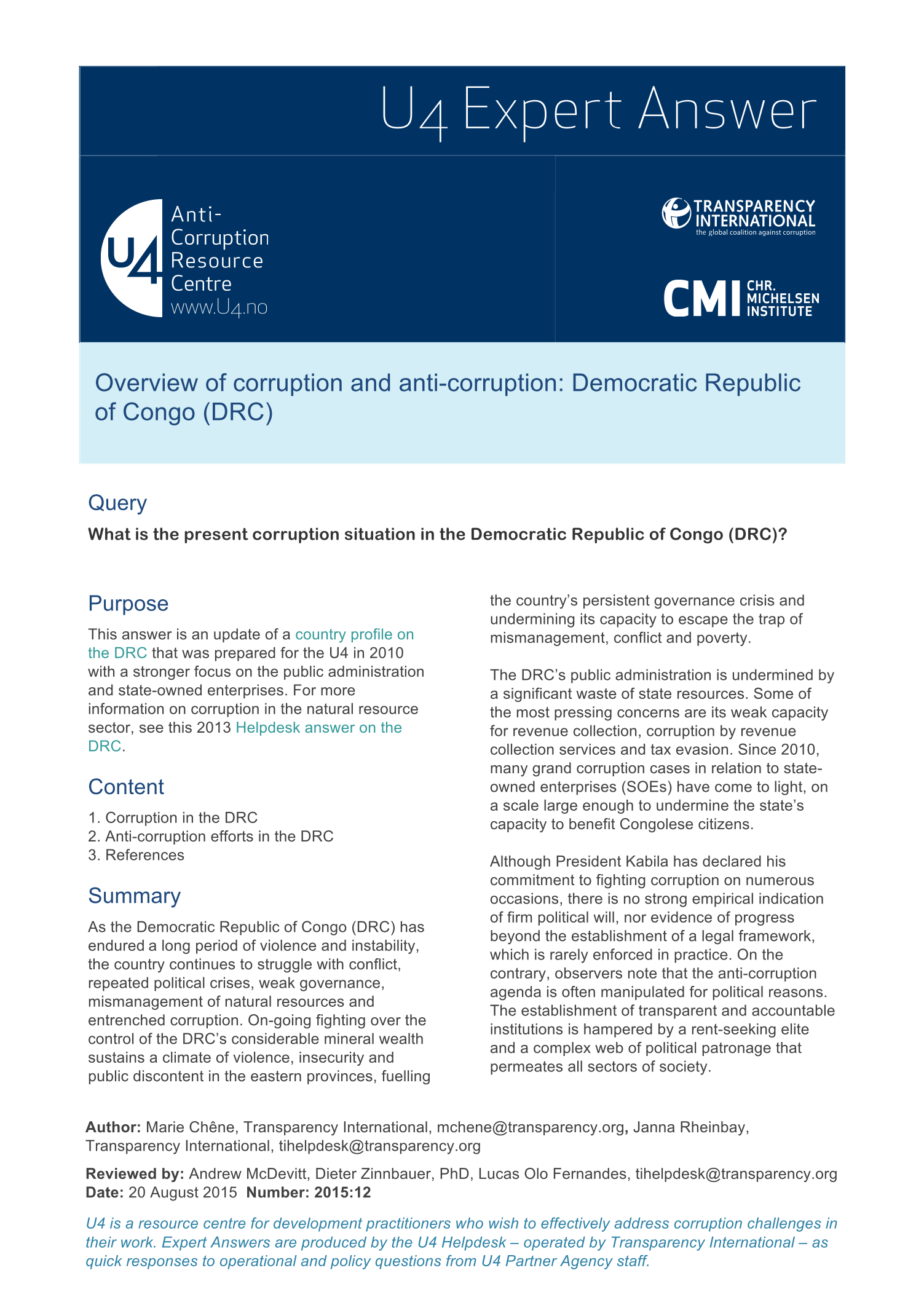U4 Helpdesk Answer
Overview of corruption and anti-corruption: Democratic Republic of Congo (DRC)
As the Democratic Republic of Congo (DRC) has endured a long period of violence and instability, the country continues to struggle with conflict, repeated political crises, weak governance, mismanagement of natural resources and entrenched corruption. On-going fighting over the control of the DRC’s considerable mineral wealth sustains a climate of violence, insecurity and public discontent in the eastern provinces, fuelling the country’s persistent governance crisis and undermining its capacity to escape the trap of mismanagement, conflict and poverty.
The DRC’s public administration is undermined by a significant waste of state resources. Some of the most pressing concerns are its weak capacity for revenue collection, corruption by revenue collection services and tax evasion. Since 2010, many grand corruption cases in relation to state-owned enterprises (SOEs) have come to light, on a scale large enough to undermine the state’s capacity to benefit Congolese citizens.

Cite this publication
Chêne, M.; Rheinbay, J. (2015) Overview of corruption and anti-corruption: Democratic Republic of Congo (DRC). U4 Expert Answer 2015:12
Disclaimer
All views in this text are the author(s)’, and may differ from the U4 partner agencies’ policies.
This work is licenced under a Creative Commons Attribution-NonCommercial-NoDerivatives 4.0 International licence (CC BY-NC-ND 4.0)

